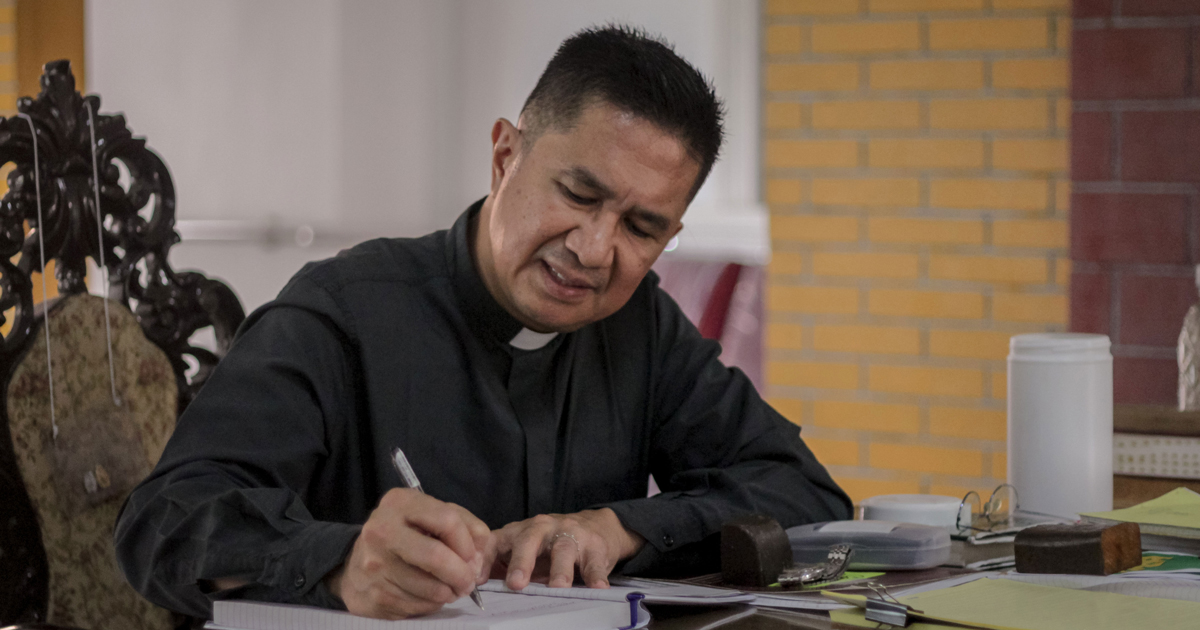
Being diagnosed with a mental illness is still largely perceived as a taboo in the country. Our careers, no matter how thriving or how healthy we might appear, won’t make us immune to the browbeating we receive regarding our mental health. This includes even the remarks from people we look up to and those who lend us their ears; even the ones we think are adamantine perfect.
Not exempt from the obstacles that could lead to problems with mental health include ministers of the Catholic church. Even priests, behind their podiums who tirelessly preach the word of the Lord everyday, are no exceptions to human emotions and the depths of it. Needless to say, unraveling a life story of slumps and turns from a member of the clergy can help shed light on our collective struggles in life. This brought me to the doorstep of a beautiful mansion home near the parish of San Jose.
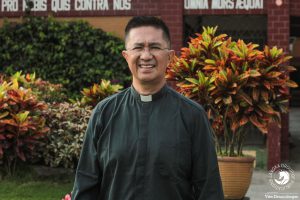
The drive was like how the elders would put it, “Just a few cigars away.” In less than twenty minutes, we arrived at the foot of what seemed to me was a mini-fortress. “Casa Marello,” the signage said. It had a mini rotunda driveway upfront and a lawn that stretched in long patches of greens and flowers of different colors and species. But beyond that, it’s a shelter for sick and elderly priests, even those diagnosed with mental health issues, of the Oblates of St. Joseph (OSJ). A man in his black sutana stood behind the railings of the brick-walled casa. He was smiling from ear-to-ear upon seeing us walk towards the gate. It was Fr. Gabriel Gerardo Kamus, but more often he is simply Fr. Gabby.
A chorale of seminarians blended with the crowing of roosters that Sunday afternoon as I started our little chat with a pinch of questions. Known in their congregation for his wit and wisdom, Fr. Gabby then started telling me about his life and how he was diagnosed with depression in 2016, and Adult Attention Deficit Hyperactive Disorder (ADHD) two years later.
For every kernel of memory he remembered, I noticed how he’d looked back at his past fondly. Having been a priest for 26 years, he recalled that his path towards his vocation started at 16 after graduating high school in DLSL in 1983. He took up Philosophy in St. Francis de Sales Regional Seminary. Fr. Gabby was cordially ordained in 1993 and presently, serves in the Parish of St. Joseph the Patriarch in his hometown of San Jose. According to him, he had the sunniest childhood years which consisted of walking adventures from Lipa to San Jose. I noticed that when it came to his family, Fr. Gabby was a natural storyteller. He never missed a beat.
“Pasuling-suling”, Fr. Gabby proclaimed himself as one of those kids who enjoyed basking in the young morning hours. He’d go to-and-fro from his household to the next one for food; specifically, fruits. He narrated how his younger sister, Bernadette, would always be reminding him of his repetitiveness with the same things. “[All of this was] because of my hyperactivity,” he revealed. Unbeknownst to him, the restlessness he’s shown as a child were the first indicators of his would-be struggles involving his mental health in his adulthood.
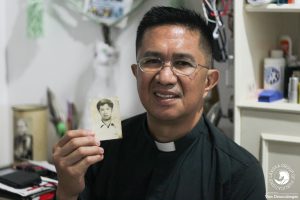
He was serving in Rome where things started to take its toll over him. At 39, he was elected as the youngest General Councilor of the OSJ and from being nestled in the arms of their ancestral home in the countryside to getting swamped by obligations six thousand miles away in Europe, Fr. Gabby’s departure meant the beginning of a new chapter. He emphasized the essence of his role as a religious in the General Council community, juggling both of his administrative and spiritual obligations. In his years of service, he was in-charge of organizing the lay movement of the Josephite-Marellian Laity for the Philippines and Rome. Other than that, he also served as an understudy secretary general and the assistant general archivist for the congregation.
“At a certain manner with due respect to the will of God and His Divine Plan, there are times when I feel that I am working only as a staff for our superiors,” he narrated. Due to his demanding responsibilities, he experienced losing sleep and having burnouts multiple times. It even got to a point wherein being just around other priests with their own problems started to take a toll on him too.
He felt as though the people around him were treating him like a child who couldn’t decide for himself. He said that they would assume he was foreign to how he must fulfill his responsibilities in the congregation among his fellow high ranking clergy abroad and he eventually realized how much of a workaholic he had evolved into.
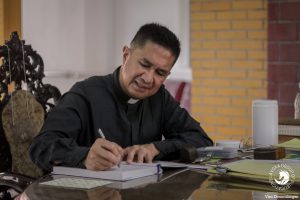
Not to mention that what he really wanted was to work for his fellow migrants, celebrating the Holy Mass and the other sacraments, giving recollections and retreats to Filipinos abroad although they weren’t part of his main responsibilities as the General Councilor. Fr. Gabby recalled their general threatening him and telling him, “You did not come here for them.”
At the end of the day, he’d merely find relief in simply saying “I’m okay” every time he’s in contact with his family although there were times when things just weren’t going well. Looking back, the reverend said that whenever he felt low and blue, he would acknowledge humanity as if it’s part of the perpetrators. He reiterated that among their vows of poverty, chastity and obedience, the most pressing was the last. “I kept on obeying. I never said no,” he said. He had default answers to any assignment that’s asked of him. “Yes, opo. Sige po. Mamaya po, opo, opo,” were his common responses. Fr. Gabby said that his obedience with the loftier friars was the problem he harbored in a nutshell.
Fr. Gabby also cited how easy it was for him to acquire new languages and disciplines and to adjust to the foreign lifestyle. But when it came down to the emotional aspect, he found it difficult to manage being alone and away from his family. This loneliness he kept only to himself and he felt that he really needed help for the depression that hounded him. “It was haunting me day and night,” he confessed. He understood that he was experiencing it not just as a priest, but more importantly as an ordinary adult yearning for nothing but recovery.
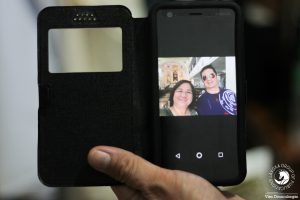
When I asked him how he eventually sought help and dealt with these challenges to keep him on his feet, Fr. Gabby said after some time, he finally reached out to his family and told them of his struggles. It was his sister who then advised him to get professional help. He was brought to a facility called the Nazareth Formation House (NFH) by his family with the support of his OSJ colleagues. “My stay in NFH [was] only a chapter [in] my life as I even needed to crawl for my recovery and find my way back to God.” He cited his gratitude for the people behind and outside the fences of his newfound home for showing him love and genuine generosity. He emphasized that one should never get into anything alone, as they should be asking for help. “It is a lifelong process; a way of life of man helping man help himself. Thanks to God for my support groups for rerouting me to the path. I am home.”
Additionally Fr. Gabby mentioned of another means by which he had sought for guidance, “I invoked the Holy Spirit to come to my aid.” As a way to meditate, he would be reciting in Latin: Veni, Sancte Spiritus which translates to Come, Holy Spirit. He also carries with him a simple four-lettered word reminder: oath, which as it turns out, is an acronym for Openness, Acceptance, Trust and Humility. With the guidance of these four values, he found peace in becoming more open about his condition and accept its reality. Presently with the continuous flow of unconditional support from the people around him, Fr. Gabby is now well on his way in the phase of healing.

He also shared that other priests continuously struggle with issues that are not usually disclosed to the public. Fr. Gabby said that their families and friends condone their alleged sins and crimes for fear of their loved ones losing money, halting friendships and cutting connections. “I believe priests, even bishops, want to be helped. It’s not yet too late.” Although hopeful, the reverend knows that the Philippine church is still unprepared and it’s because of the reason that no one has the courage to speak about it yet. “Pari may disorder? Bishop may disorder?” he raised the questions.
Towards the end of our kwentuhan, Fr. Gabby shared with us a memory he had post trials, “I found myself in a slightly-illuminated chapel. It was a very private chapel with a cross hanging on the wall, and there’s a spotlight.” It was a perfect place for solitude. While there, the reverend found himself raising both of his arms. And then suddenly just like in his story, he took his arms up in the air mid sentence. He said, “Lord, have mercy on me.”
His sincerity with every word explained to me that even the men of the church experience what us civilians do. That afternoon with Fr. Gabby took my mind to all the places he’d gone to and the encounters he’s been through. I imagined every story like I existed in them as well. It’s something one would inevitably feel, interacting with him.
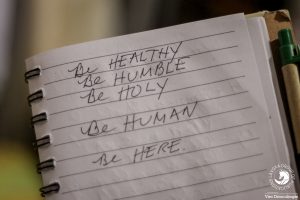
In all aspects gravitating towards his betterment, physical, mental, spiritual and emotional, the reverend had an assertion, “I chose to live.” Fr. Gabby walked us back to the entrance of Casa Marello, still full of stories and even offered us merienda. Having that dialogue with him made me realize that getting yourself checked is a form of self-care and will never be defined by misjudgments from others. Acquiring depression or any other type of mental disorder, particularly among the members of the clergy, is a matter that they must not be naturally ashamed of regardless of their responsibilities as a religious in the community. Fr. Gabby is here to remind us that it’s okay to ask for help. As he preached unfailingly, he affirmed that God gave him hope and he found it. He sought help and he claimed it. “I believe there are people who would not be giving up on this.”


Very good post. I absolutely appreciate thks site. Thanks!
http://www.good-tutorials.com/users/danaobrien1999
Essay is a rally rsasonably reasonably priced esssay creating services.
dissertation writers uk
dissertation writers uk https://www.damondnollan.com/p/contact-me.html?showComment=1611301621066